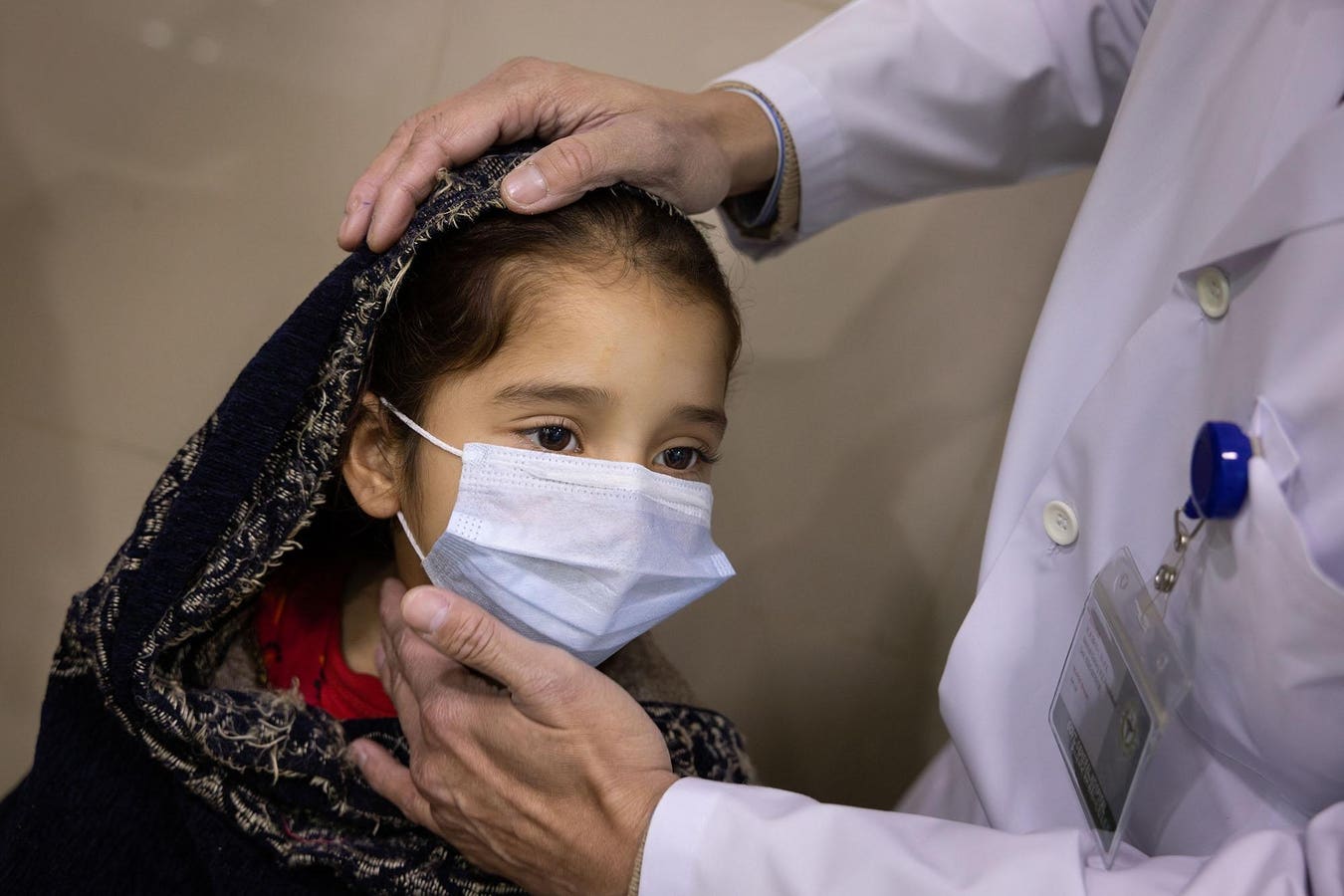TOPSHOT – Palestinian women and children hold out their empty pots in front of a charity kitchen in Khan Yunis in the southern Gaza Strip on August 21, 2025. Rights group Amnesty International earlier this week accused Israel of enacting a “deliberate policy” of starvation in Gaza. Israel heavily restricts aid coming into Gaza but has repeatedly rejected claims of deliberate starvation. (Photo by AFP) (Photo by -/AFP via Getty Images)
AFP via Getty Images
A famine has finally been declared in northern Gaza, according to The Integrated Food Security Phase Classification analysis. This ultimately will affect more than half a million individuals in Gaza, according to the World Health Organization in the upcoming weeks, and is largely due to Israel limiting the flow of food and aid into Gaza, according to reports from NPR.
While many associate famines with starvation and empty plates, it also represents a public health crisis that can shape the well-being of a population for generations. The health ramifications of a famine ripple far beyond merely starvation, affecting nearly every system in the body and nearly every layer of society. Here’s how a famine can affect the health of those exposed to it.
Malnutrition And Failure To Thrive
One of the most obvious and direct effects of a famine is starvation and malnutrition. Without adequate nutrients and calories, the body goes into survival mode and starts to break down carbohydrates, fats and eventually muscle in order to survive. For a child, this can translate to stunted growth, malnutrition and wasting. Adults can also face profound health consequences. Deficiencies in certain vitamins and minerals like vitamin A and iron can lead to blindness and anemia; respectively.
Pregnant females are especially susceptible to the risks of a famine, as malnutrition significantly increases the risk of premature birth, low-birth weight and developmental delays for a newborn baby. This effectively perpetuates a cycle of poor health across generations, which could leave lasting impacts for decades to come.
Weakened Immunity
Famines do not occur in isolation; they weaken communities at times when resilience is absolutely necessary. Starvation and malnutrition weaken the immune system for both children and adults, which makes the citizens of Gaza much more susceptible to infections like pneumonia, tuberculosis and malaria; to name a few.
Malnourished children and adults do not acquire critical vitamins and minerals that are necessary to ward off infections. As an example, vitamin C allows the body to produce white blood cells, which are critical in helping the body fight infections. A simple respiratory illness that may be survivable in a well-fed individual can lead to death in a malnourished child during a famine. Since mid-July, at least 16 children in Gaza under the age of 5 have died from hunger-related causes, according to the United Nations.
Chronic Medical Conditions
Research demonstrates that children who experience malnutrition and starvation can have health impacts that last a lifetime. Specifically, these children are more prone to developing obesity, heart disease and diabetes later in life. These chronic medical conditions translate to a life of disability, hospital visits, medications, financial instability and early death.
The debilitating chronic health effects occur because the body, having adapted to scarcity, becomes more vulnerable when exposed to calorie-rich diets later on. In addition, the heart is a muscle, and starvation ultimately leads to the breakdown of even the heart muscle, which renders it inefficient and unable to meet the circulation demands of the body. Even after food supplies stabilize, a famine can sow the seeds for the development of future epidemics of non-communicable diseases.
Mental Health
The psychological trauma of a famine is discussed much less but is no less devastating than the physical consequences. Food insecurity from starvation and a famine can lead to profound feelings of stress, anxiety and depression. For parents, watching hopelessly as their children starve can trigger psychological trauma which can erode community cohesion. Children who experience famine first hand can develop post-traumatic stress disorder for the remain of their lives, leading to diminished productivity in school, lower educational attainment and ultimately financial instability. These psychological effects can last a lifetime, well after physical needs are eventually met.
The famine that has been declared in Gaza is not just about a lack of food- it is a public health catastrophe with long-term consequences. This crisis will only worsen unless humanitarian aid and food are restored immediately. Its effects can linger across a lifetime and can affect generations to come. Food security is not just a matter of survival, but should be the foundation of human health and dignity, particularly for all the citizens of Gaza who deserve so much more.









